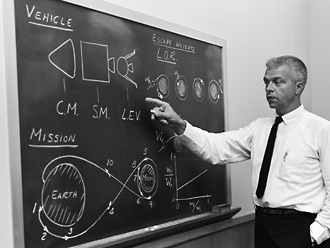Having read your disclaimer about privacy and whatnot, I’ll be referring to all companies in this post by generic names, except for one company, which I’ll refer to as Hooli, for reasons that should be apparent to any fans of the HBO series Silicon Valley.
I’d come off my summer internship feeling somewhat disillusioned about my future. I had worked for a large motor control company in the midwest. I wrote setup software to assist a product in development. My project (as well as the other software projects I learned about) was non-priority and dealt with heavy bureaucratic interference. I spent a lot of time in a colorless cubicle talking to nobody – which was far more physically and emotionally draining than I would have anticipated.
So I came into my new job search wanting something completely different. I targeted companies based on certain properties – I wanted to work for a company that embraced and valued software (Hooli and DeltaCorp) or a consulting firm that would allow me to reach my potential as a problem-solver (AlphaCorp). There were some firms that blurred the line as software consulting firms (BravoCorp and CharlieCorp)- I looked at these as kind of the the best of both worlds, and also as ideally sized companies (I didn’t exactly love the slow grind of a large company that I experienced during my internship, but I also didn’t want to start my career at a squishy startup.)
The most surprising thing about the process was probably how much I trusted myself along the way. I can say this for a number of reasons. The primary reason was that I was far more confident compared to the nightmare that had been my previous year; trying to find an internship with a 2.9 GPA is a terrible experience and I wouldn’t wish it on my worst enemy. Going into a job search with a solid experience section on your CV is much more satisfying (I still had a 2.9, but most companies didn’t even ask this year. Odd.) I also trusted my abilities in the interview process. I felt better about communicating what I wanted from a job and how I thought I could do that job well. Maybe the most comforting part of the whole season was that I was convinced of the absolutely random nature of the job search process. I stopped freaking out about perfecting my resume or memorizing answers to questions. Either I would get the job or I wouldn’t, and a large part of that was entirely out of my hands. A lot of this was laid out in the Wired article assigned for class reading: if the interviewer was having a bad day, you could get passed up for almost no reason.
In fact, the most frustrating part of the interview process was the interview itself. Being halfway through an algorithms course, I didn’t have quite the grasp on many of the technical questions I would be asked. I probably could have prepared better (I borrowed a copy of Cracking the Coding interview and did some practice problems), but I didn’t have much time working two jobs and a full courseload. I did much better in the behavior and analytical interviews.
The important part of this process is that I was able to identify companies wanted to work for, apply to them, and have thorough, honest conversations with employees and recruiters throughout the experience. I honestly can’t say much as to the effectiveness of the system, having not really experienced the end product, but I would guess that it would be effective in the aggregate. Sure, the whole process was random and needlessly complex, but I’m pretty confident that it was able to weed out incompetence fairly efficiently. I did experience some of the questions described in the CodingHorror article – problems designed to show simply that you have a basic knowledge of programming. An interviewer from DeltaCorp asked me to implement a hashtable using arrays and stopped me pretty shortly into my answer because he didn’t care about the answer, he just wanted to make sure I knew what an array was.
In that regard, even though the process was intensely stressful and taxing, I do think it is humane. It rewards hard work, ability, and persistence. Though the process is fairly random, it is also fairly reasonable. A candidate without any ‘strikes’ against him will generally have a good shot of coming out of the process with a competitive job, and a candidate that can’t solve a simple FizzBuzz problem will generally not. That’s not to say that ‘good enough’ is good enough; the process isn’t perfect to be sure, and ‘good enough’ is not worthy of our society, but it’s what we have to deal with now.
